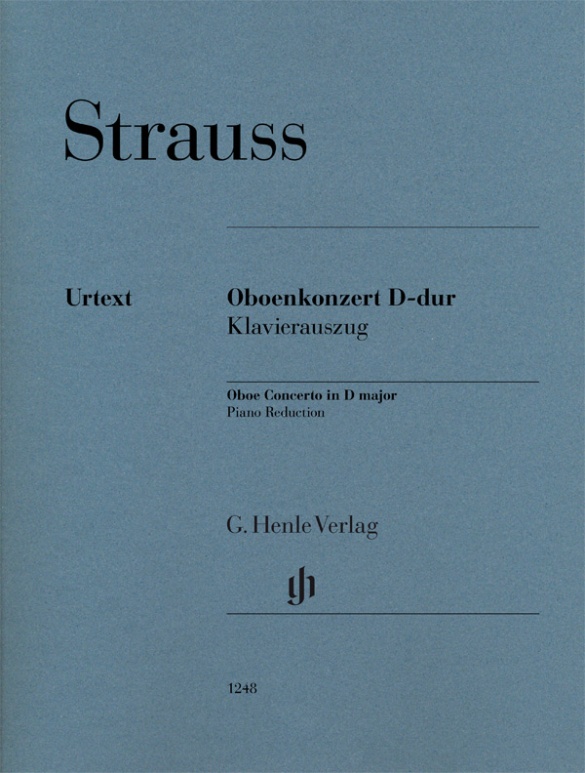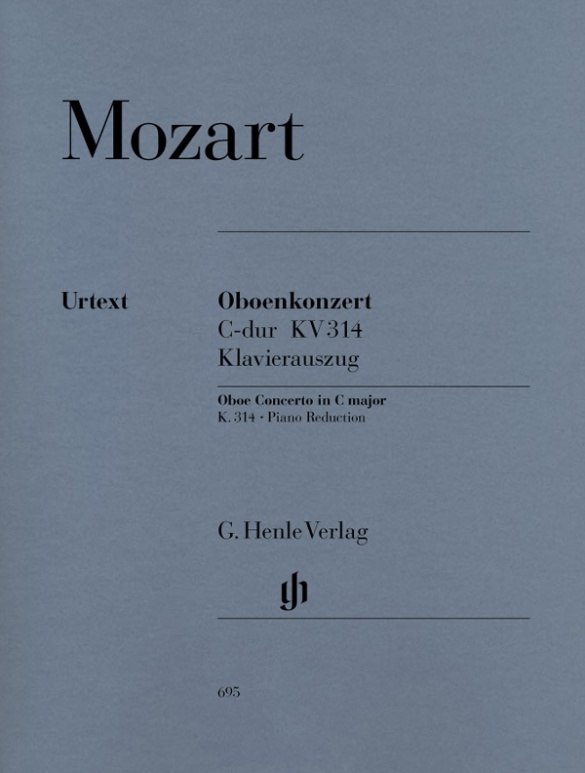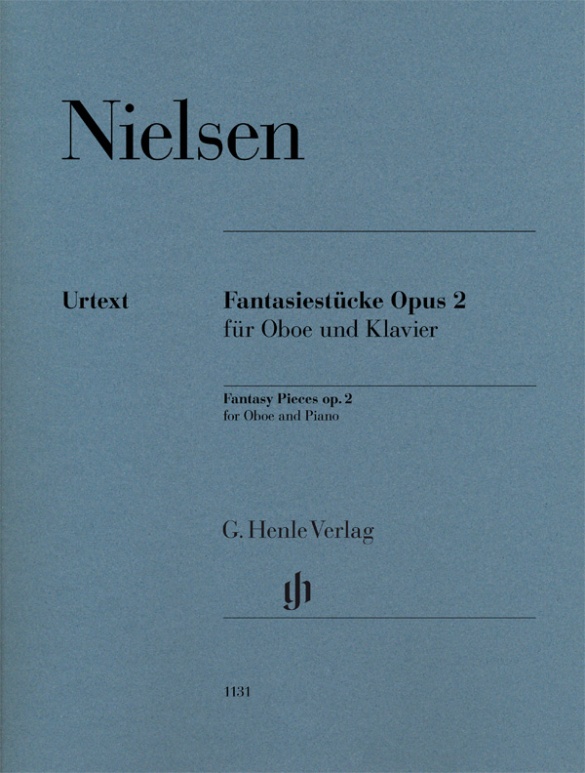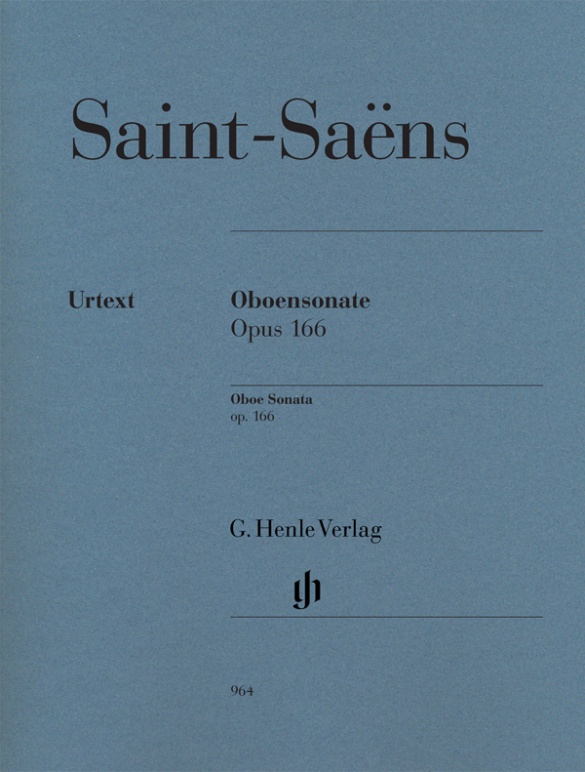Richard Strauss
Oboe Concerto D major
“Oboe Concerto 1945, inspired by an American soldier, (oboist from Chicago)” – was what Richard Strauss noted down. And the oboist and soldier with the American occupation John de Lancie had indeed asked Richard Strauss in May 1945 whether he had ever thought of writing an oboe concerto. Strauss answered in the negative, but soon got to work anyway. In October 1945, he had completed the score in Swiss exile; the premiere took place in Zurich in 1946. Not until 1948 did the first edition appear in London, presumably for the most part without the composer’s involvement, for both the printed score and the orchestral parts exhibit numerous errors. Some of these have been known for a while, though others have only now been discovered by Hansjörg Schellenberger through his exact reconciliation of the autograph full score with the autograph particella. The world-class oboist thus presents this concerto for the first time in a Henle Urtext edition in both full score and piano reduction!
内容/詳細
作曲家について
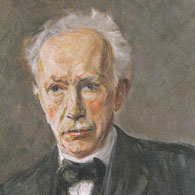
Richard Strauss
One of the most important opera composers of the twentieth century. His oeuvre comprises fifteen operas, nine symphonic poems, instrumental concerti, and a large number of songs. His stage works are marked by their great variety of genre and subject matter.
| 1864 | Born in Munich on June 11, the son of Franz Joseph Strauss, principal horn player in the court orchestra. Receives instruction in piano, violin, and composition. |
| 1885–86 | Conductor at the Meiningen Court Orchestra, initially under the tutelage of Hans von Bülow. |
| 1886 | Music director at the Munich Court Theatre. |
| 1887–1903 | He increasingly devotes himself to the symphonic poem, including “Tod und Verklärung” (“Death and Transfiguration”) in C minor, Op. 24; “Till Eulenspiegels lustige Streiche” (“Till Eulenspiegel’s Merry Pranks”) in F major, Op. 28; “Also sprach Zarathustra,” Op. 30; “Symphonia Domestica” in F major for large orchestra, Op. 53. |
| 1889–94 | Music director in Weimar. First Kapellmeister in Munich in 1894, in Berlin at the Royal Court Opera from 1898–1910. |
| 1905 | Breakthrough with the premiere of “Salome,” Op. 54. |
| 1906 | Beginning of his collaboration with Hugo von Hofmannsthal on the harmonically progressive opera “Elektra,” Op. 58, premiered in Dresden in 1909. |
| 1911 | Sensational premiere in Dresden of “Der Rosenkavalier,” Op. 59, which refers back to operatic tradition and makes him the leading German opera composer. He decides to dedicate himself primarily to operas: “Ariadne auf Naxos,” Op. 60 (1912); “Intermezzo” Op. 72 (1924); “Die ägyptische Helena,” Op. 75 (1928); “Arabella,” Op. 79 (1933); “Die schweigsame Frau,” Op. 80 (1935); “Friedenstag,” Op. 81, and “Daphne,” Op. 82 (1938); “Die Liebe der Danae,” Op. 83 (1944). |
| 1919 | Director of the Vienna State Opera. Premiere there of “Die Frau ohne Schatten,” Op. 65. |
| 1931 | Collaboration with Stefan Zweig. |
| from 1944 | Composition of his last works: Metamorphosen, for 23 solo strings, Oboe Concerto in D major, Four Last Songs. |
| 1949 | Death in Garmisch-Partenkirchen on September 8. |
校訂者や運指担当者について
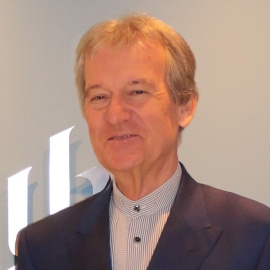
Hansjörg Schellenberger (校訂)
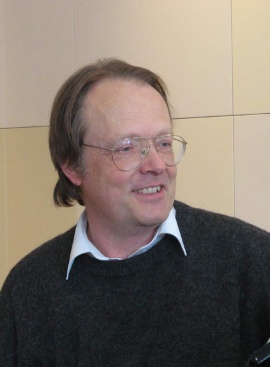
Johannes Umbreit (ピアノ・スコア)
Prof. Johannes Umbreit studied the piano at the Musikhochschule in Munich. From 1987 onwards he was a regular accompanist at courses given by Wolfgang Schneiderhan, Thomas Brandis, Ljerko Spiller, Igor Ozim, Olga Woitowa, Ernő Sebestyén, Walter Nothas, F. Andrejevsky, Denis Zsigmondy and Zakhar Bron amongst others. He has appeared in numerous radio and TV broadcasts and plays chamber music with members of the Bavarian State Orchestra, the Munich Philharmonic Orchestra and the Bavarian Radio Symphony Orchestra.
He is on the jury of different international competitions and has been invited to several international music festivals. Umbreit was a teacher for almost ten years at the Musikhochschule in Munich and at the same time a lecturer for chamber music and piano accompaniment at the Richard Strauss Conservatory. Since 2008 he has been a lecturer at the Hochschule für Musik und Theater München. As the long-serving managing director of the Richard-Strauss-Gesellschaft, he was made an honorary member of the board in 2009. In May 2011, the Bavarian Minister of Culture appointed Johannes Umbreit an honorary professor of the Hochschule für Musik und Theater München on the suggestion of its academic senate.
製品安全に関する情報

G. Henle Verlag
製品の製造元に関する情報はこちらでご覧いただけます。G. Henle Verlag
Forstenrieder Allee 122
81476 München
info@henle.de
www.henle.com
L’éditeur put s’entourer de collaborateurs de prestige avec le hautboïste Hans-Jörg Schellenberger, ancien membre du Philharmonique de Berlin et le légendaire corniste Peter Damm, de la Staatskapelle de Dresde, pour superviser ces éditions. Dans ce type de répertoire qui parle plus aux praticiens de l’instrument qu’aux musicologies, de telles collaborations sont une plus-value indéniable.
Crescendo Magazine, 2020おすすめ
autogenerated_cross_selling
このタイトルを含む他の版
このタイトルを含む他の版


